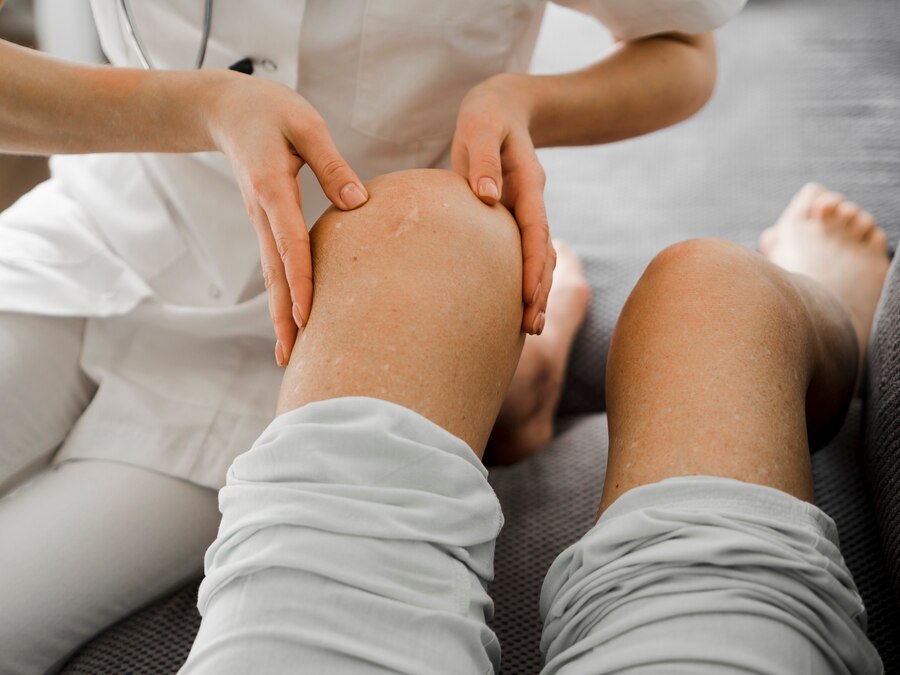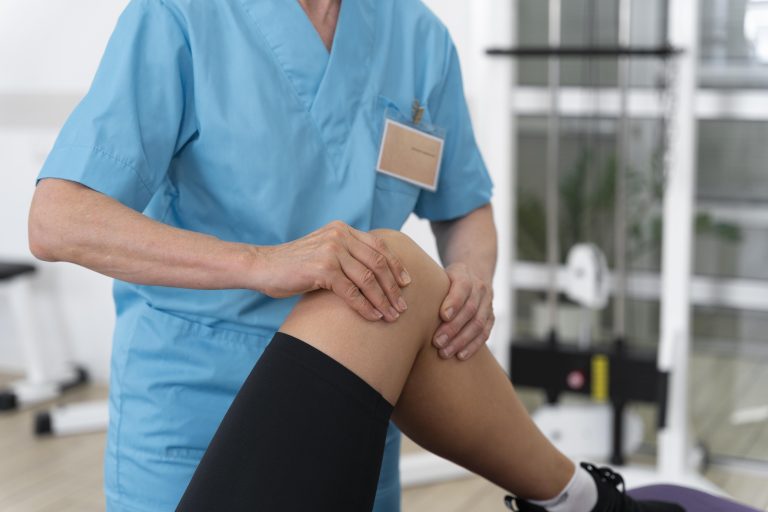Knee pain is a common problem that affects people of all ages. Whether it’s due to injury, arthritis, or overuse, knee pain can limit mobility and disrupt daily life. For those living in Warren, Sterling Heights, and surrounding areas, finding the right treatment is essential to manage pain and restore function. Two popular approaches to treating knee pain are chiropractic care and traditional medicine. But which is better for you? Let’s break down both options to help you decide.
Understanding the Causes of Knee Pain
Before diving into treatment options, it’s important to understand the common causes of knee pain. Some of the most frequent reasons for knee pain include:
- Osteoarthritis: Degeneration of cartilage in the knee joint, often associated with aging.
- Injuries: Sports injuries, falls, or accidents can cause ligament tears, fractures, or sprains.
- Overuse: Repetitive activities like running or jumping can lead to inflammation of the tendons or cartilage.
- Bursitis: Inflammation of the fluid-filled sacs (bursae) around the knee joint.
Residents in Troy, Roseville, and Madison Heights may experience knee pain for any of these reasons, and finding the right treatment is key to improving mobility and reducing discomfort.
Chiropractic Care for Knee Pain
Chiropractic care is a holistic, non-invasive approach that focuses on improving the body’s alignment and function. Chiropractors use a variety of techniques, including manual adjustments, to correct misalignments in the spine and other joints. When it comes to knee pain, chiropractic care can offer several benefits.
Benefits of Chiropractic Care:
- Natural Pain Relief: Chiropractors treat knee pain by addressing the root cause, such as misalignment or joint dysfunction, without relying on medications or surgery. This drug-free approach appeals to individuals in Clinton Township and Fraser who prefer natural treatments.
- Improved Joint Mobility: Chiropractic adjustments can restore proper alignment in the knee joint, which improves mobility and reduces stiffness. This is particularly helpful for patients with arthritis or chronic knee pain.
- Reduced Inflammation: Chiropractic care helps reduce inflammation by promoting better circulation and reducing pressure on the affected joint. For patients in Eastpointe or Saint Clair Shores dealing with knee pain due to swelling, chiropractic adjustments can bring relief.
- Whole-Body Approach: Chiropractors often focus on how other parts of the body, such as the hips or lower back, affect knee pain. By addressing these areas, they provide a more comprehensive approach to pain management.
- Rehabilitation and Strengthening: Many chiropractic clinics, like Spinal Recovery Center in Warren, offer rehabilitation exercises and strength training programs to support long-term knee health and prevent future injuries.
Traditional Medicine for Knee Pain
Traditional medicine for knee pain typically involves a combination of medications, physical therapy, and, in severe cases, surgery. Let’s take a closer look at how traditional medicine approaches knee pain treatment.
Benefits of Traditional Medicine:
- Immediate Pain Relief: Medications like NSAIDs (non-steroidal anti-inflammatory drugs) and pain relievers provide quick relief from knee pain. Injections, such as cortisone, can reduce inflammation and pain in the joint. For patients in Detroit or Royal Oak who need fast pain relief, this can be an effective solution.
- Physical Therapy: Traditional medicine often includes physical therapy to strengthen the muscles around the knee and improve mobility. Physical therapists work with patients to create a personalized plan that can help them recover from injury or surgery.
- Surgical Options: In severe cases, traditional medicine may recommend surgical intervention, such as knee replacement surgery or arthroscopy, to repair damaged tissues. For patients with advanced arthritis or ligament tears, surgery can provide long-term relief.
- Diagnostic Tools: Traditional medicine makes use of advanced diagnostic tools, such as X-rays, MRIs, and CT scans, to accurately diagnose the underlying cause of knee pain. This detailed insight allows doctors to develop more targeted treatment plans.
Chiropractic vs. Traditional Medicine: Which Is Right for You?
When deciding between chiropractic care and traditional medicine, consider the following factors:
1. Severity of the Condition
- Chiropractic Care: Best for mild to moderate knee pain caused by joint misalignment, muscle strain, or early-stage arthritis. If your pain is due to misalignment in the spine or hips, chiropractic care can provide relief without the need for medication or surgery.
- Traditional Medicine: More appropriate for severe knee conditions, such as ligament tears, fractures, or advanced arthritis. If your knee pain requires surgery or extensive rehabilitation, traditional medicine may offer a more comprehensive solution.
2. Invasiveness
- Chiropractic Care: Chiropractic treatment is non-invasive and focuses on natural healing. For individuals in Warren and Sterling Heights seeking a non-surgical, drug-free approach, chiropractic care is an excellent option.
- Traditional Medicine: Traditional treatments may involve invasive procedures, such as injections or surgery, which can carry risks like infection or complications from anesthesia.
3. Recovery Time
- Chiropractic Care: Most chiropractic treatments require little to no recovery time, allowing you to resume normal activities quickly.
- Traditional Medicine: Depending on the procedure, traditional medicine may involve significant downtime. For example, knee replacement surgery often requires months of rehabilitation.
4. Personal Preference
- Chiropractic Care: If you prefer a holistic, hands-on approach that focuses on overall body alignment and function, chiropractic care may be the right fit for you.
- Traditional Medicine: If you’re looking for immediate pain relief through medication or are open to surgical options, traditional medicine may better meet your needs.
Combining Both Approaches
In many cases, patients benefit from combining chiropractic care with traditional medicine. For instance, you may use chiropractic adjustments to improve joint alignment while also participating in physical therapy or taking medications to manage acute pain. The combination of these treatments can provide a well-rounded approach to knee pain management.
Contact Spinal Recovery Center in Warren, MI
If you’re suffering from knee pain and are unsure whether chiropractic care or traditional medicine is right for you, contact Spinal Recovery Center in Warren, MI. We offer personalized chiropractic care for patients in Sterling Heights, Troy, Roseville, and surrounding areas.
Our clinic, located at 12300 E 12 Mile Rd, Warren, MI 48093, is dedicated to providing holistic care to improve your joint health and reduce pain. To schedule an appointment, call us at (586) 573-8100 or visit our website at spinalrecoverycenter.com.




